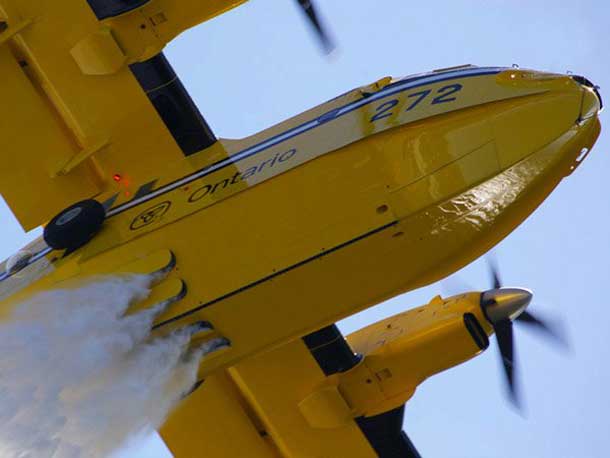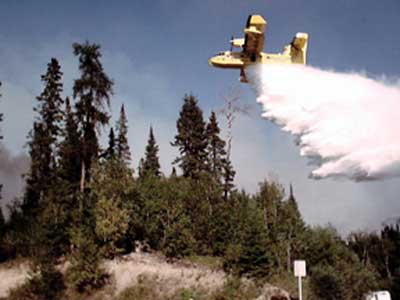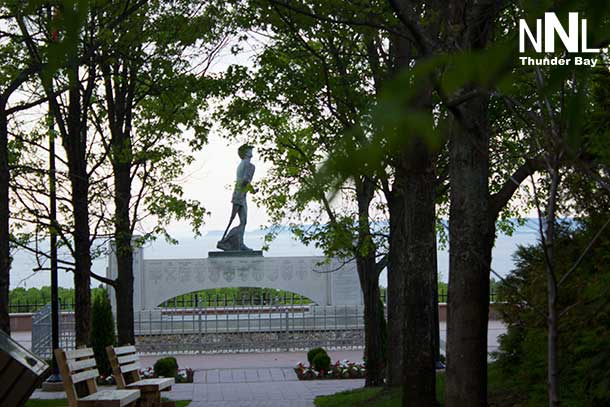
Forest Fire Hazard Starting to Climb
THUNDER BAY – The forest fire hazard is on the climb for the Thunder Bay, Nipigon, and Greenstone areas. Warm sunny afternoons, high winds and little rainfall have increased the forest fire hazard to high and extreme in these areas.
There remain five active fires in the region; four fires listed as being observed and one small fire listed as under control, all of which are in the Far North. There are no problems anticipated with these fires as they do not pose a threat to people or property.
The public is reminded to be safe with all outdoor fires such as campfires and shore lunches. It only takes seconds for a campfire to turn into a wildfire especially on hot, sunny, windy days. Make sure you have adequate water and tools onsite to put your fire out before leaving. Keep your fire small and manageable. Build your fire on exposed bedrock or mineral soil and keep it away from other flammable material and over hanging tree branches. It’s always a good idea to check with your local municipality to see what the by-laws are in your area.

Boater Safety when CL-415 Waterbombers are working
Curiosity drives people and nothing draws a crowd faster than a CL-415 heavy waterbomber scooping water and dropping it on a forest fire.
The big tankers are a combination of power, size and acrobatic movement as they swoop down from the sky, skimming across the lake at high speed, scooping water through small probes on the under body and then lifting off and flying to a wildfire target.
The safest way for boaters to operate in the presence of a waterbomber is to move away from the area immediately. This prevents any chance of collision, and lessens the impact of the large wake that a waterbomber can create in the water.
It is also important to know that waterbombers usually operate in circuits flying to the lake, scooping, and flying off to drop their load on the fire then circling back to the lake to repeat the process. This means boaters have to watch for the waterbomber’s return. Often more than one waterbomber works on a fire and they set up circuit patterns with one dropping a load on the fire and one or more en route to the lake for more water.
 The operation of waterbombers is strictly regulated and if boaters come too close or there is any potential safety hazard then the waterbombers will be forced to find another location to scoop water.
The operation of waterbombers is strictly regulated and if boaters come too close or there is any potential safety hazard then the waterbombers will be forced to find another location to scoop water.
This may place them further away from the fire and result in a longer turnaround time to get water on the fire. When every minute counts in wildfire management an unnecessary delay in waterbombing could be critical.
So, for the safety of everyone boaters are encouraged to move away from any area where waterbombers are scooping.
CL-415 Waterbomber Facts:
- CL-415 Waterbomber is made in Montreal by Bombardier Ltd. and described as a high wing, all metal, amphibious flying boat with integral tanks for water bombing
- The province of Ontario owns 9 of these aircraft
- Wingspan of 28.63m (93ft 11in)
- Length 19.82m (65ft)
- Height 8.98m (29ft 5.5in)
- The internal water tanks can hold 6,130L (1,350 imperial gallons)
- It takes 12 seconds to fill both internal tanks
- Average time on a fire scene is 4 hours
- With a full load of water in the tanks, the plane can travel at 325km/h (190 knots)
- Without water in the tanks, the plane can travel at 365km/h (197knots)
For FireSmart tips visit www.ontario.ca/fireprevention
Report forest fires in the Northwest Region and the Northeast Region (for areas north of the French and Mattawa Rivers) by dialing 310-FIRE (3473). Southern region forest fires can be reported by calling the local fire department.











